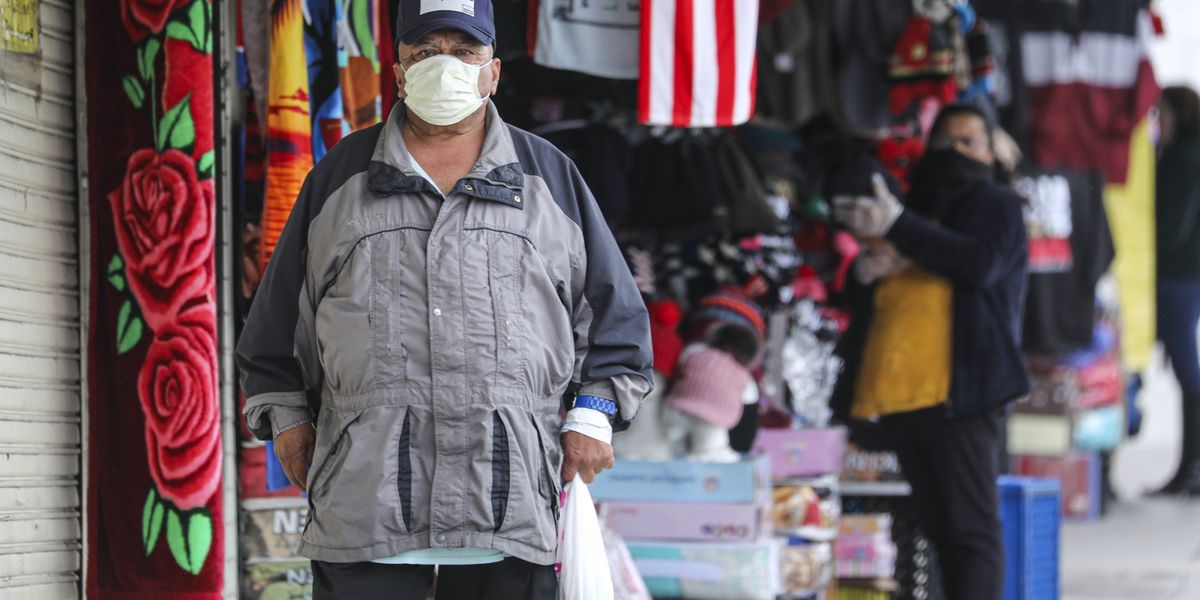Is the pandemic bringing countries together or pushing them further apart?

A few minutes every morning is all you need.
Stay up to date on the world's Headlines and Human Stories. It's fun, it's factual, it's fluff-free.
With the COVID-19 pandemic taking up a significant amount of the world’s collective attention, anxieties and resources, one of its impacts has been the nature of relationships between countries.
While some bilateral relationships have been affected more than others during the pandemic – such as the relationship between the United States and China, which appears to be increasingly strained – in other ways the coronavirus has brought a common enemy to nations with varied and sometimes contradictory goals and ambitions.
In one example of timely cooperation, the countries of the European Union have managed to slow the spread of the virus within the region and pass a US$860 billion economic relief package aimed at bolstering its economy.
Furthermore, widespread social distancing, mask-wearing policies and travel shutdowns – albeit to different degrees and severities – arguably shows that many countries are willing to conform to international standards to protect themselves and others during a crisis.
Although critics say these moves are mostly in response to a situation where most national leaders feel compelled to do all they can to protect their citizens and any international cooperation that results is merely a byproduct, others note that without international norms, procedures and assistance mechanisms, the virus’s toll could have been even worse.
Geopolitical tensions
International organizations such as the World Health Organization (WHO) and the United Nations have been pushing for international cooperation during the coronavirus era.
The US, however, appears to have opted to largely forgo its perceived role as the international leader, with the Trump administration instead using the virus to further its America First agenda and spread suspicions of international cooperation and obligations.
Not only has the US sparred with China, sometimes accusing Beijing of manufacturing, spreading or suppressing knowledge of the virus with ill intent – all of which is backed up with zero evidence – Washington has also decided to withdraw its funding for the WHO, the leading international body dedicated to public health.
The Trump administration has argued that the WHO bungled the virus response and supported China despite the “malfeasance of the Chinese government,” but critics say the move has proved dangerous and is ultimately self-defeating.
In May the UN Secretary-General, Antonio Guterres, lamented the lack of global leadership during the crisis.
“There is … a disconnect between leadership and power. We see remarkable examples of leadership but they are usually not associated with power. And where we see power we sometimes do not see the necessary leadership,” Guterres said.
Vaccine race
The race to find a viable vaccine, meanwhile, has divided observers in regards to global cooperation.
While many countries have poured money, resources and personnel into the search for a vaccine, working across borders to find a cure, other countries have sought to position themselves as the best contender to find a possible vaccine, sometimes doing so via questionable methods.
China, for instance, has partly militarized its search for the virus, while both Tehran and Beijing have reportedly employed hackers to trove databases of international drug firms to glean an upper hand.
US President Donald Trump has sought to use America’s wealth to ensure it becomes the first country to have access to a vaccine. Earlier this year, Trump reportedly offered US$1 billion to a German biopharmaceutical company called CureVac if it would agree to sell its research to the US.
More recently, the US government announced it had reached an agreement with Pfizer, the American pharmaceutical company, and BioNTech SE, a German company, for US$1.95 billion to obtain 100 million doses of a COVID-19 vaccine.
Countries with the means to purchase a vaccine first all but ensure that they will be the first to distribute a vaccine among their populations. While not illegal or underhanded, this would likely result in unequal global access to a vaccine.
In response to accusations that China was failing to live up to its international commitments in the search for the virus, a government spokesman in May urged countries to stop the “blame game” over the cure and stated that Chinese companies were supplying billions of face masks, millions of protective suits and thousands of ventilators to countries in need.
Some have characterized China’s actions during the pandemic as an example of “mask diplomacy.”
Drive for cooperation?
According to Helen Regan, a CNN analyst, the overall global response to the virus could be worth emulating for other crises like climate change and air pollution.
Regan argues that the climate crisis is just as serious to the planet and human lives as the coronavirus is, even though it’s generally looked at as a problem that doesn’t require an immediate and serious response.
“It actually hurts because it shows that at the national, or international level, if we need to take action we can,” said Donna Green, associate professor at University of New South Wales’s Climate Change Research Centre.
“So why haven’t we [taken action] for climate? And not with words, with real actions,” Green added.
Others, like Nobel Peace Prize laureate Mohamed ElBaradei, agree with this sentiment, arguing that the virus should be seen as a wake-up call to strengthen international cooperation.
“If the pandemic has made one thing clear, it is that we are one human family. Only by recognizing this – by taking care of one another, as well as the planet on which we all depend – can any of us hope for a better future. In this sense, cooperation is not only an ethical imperative, but also an existential one,” ElBaradei wrote.
Have a tip or story? Get in touch with our reporters at tips@themilsource.com




Comments ()